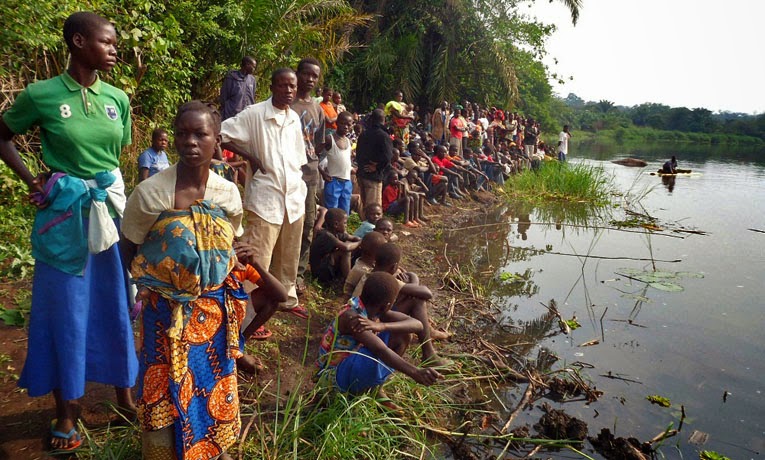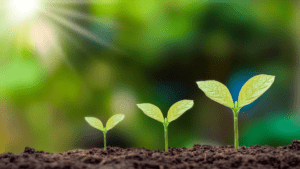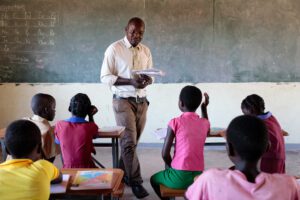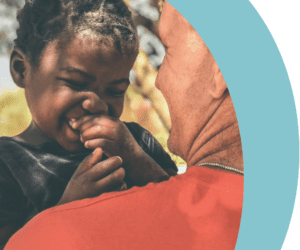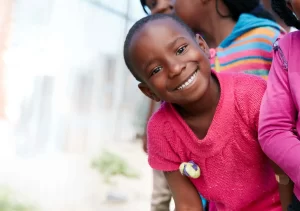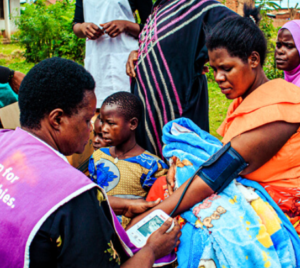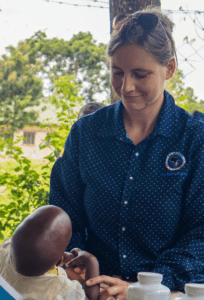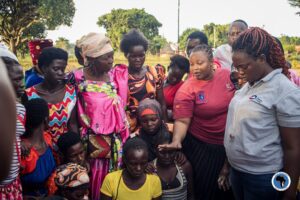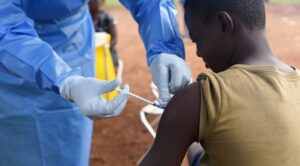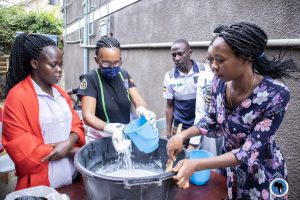Uganda to lose 6% GDP to climate change
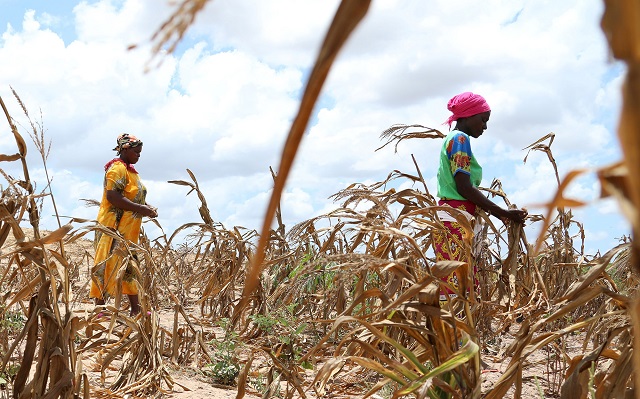
Poverty to increase as maize, beans are hit
Kampala, Uganda | THE INDEPENDENT | Uganda will suffer significant economic loss if global warming is not limited to below 2°C, according to a new study by the Center for Global Development; a Washington D.C based think tank that focuses on international development. Production of important food staples such as maize and beans could decline.
The report reviews the patterns and trends of the impact of climate change on socioeconomic indicators, including economic growth, agricultural productivity, poverty, food security, health, water resources, and the energy sector.
Generally, the report says if climate change continues on its current trend, crop production in Africa will decline by 2.9% in 2030 and by 18% by 2050.
As a result, about 200 million people risk suffering from extreme hunger by 2050. There will be a crop revenue loss of approximately 30% which will cause a rise in poverty of between 20% and 30% compared to a no-climate-change scenario.
This will happen because climate change will drive agricultural production down, so crop sales will suffer although scarcity will raise prices.
The report says the prevalence of undernourishment increased from 8 percent in 2019 to 9.8 percent in 2021. Asia, Africa, Latin America, and the Caribbean were the most affected regions. In these regions, 425 million, 278 million, and 56.5 million people were undernourished in 2021, respectively. With climate change affecting the global food supply chain, more people might face extreme food insecurity.
These findings and others that cover countries across the globe are contained in a report entitled: `The Socioeconomic Impact of Climate Change in Developing Countries in the Next Decades: A review’. It is written by Associate Professor Philip Kofi Adom, an Environment and energy economist in the School of Economics and Finance, University of the Witwatersrand, South Africa. To come up with the report, Prof. Adom synchronised many years of research by climate change scientists and researchers.
The data he used originate from previously published works that provide quantitative assessment of the future impacts of climate change on socioeconomic factors.
The report points out that most developing economies depend heavily on Agriculture as the primary sector yet it critically depends on temperature and precipitation, any abnormal and irregular changes in these climate indicators will affect activities of the sector.
“Specifically, climate change is expected to impact farmland and labor productivity as well as food security for several decades, even if mitigation measures are implemented now,” the report says.
It says climate change can reduce food production by directly altering agroecological conditions or indirectly by affecting demand for agricultural products, income distribution, and economic growth, and reduce the availability of suitable land for agriculture.
Avoiding this climate change impact on agriculture is critical because, in Africa, 42.5% of the working class is employed in the sector. A higher share of these people live in rural areas and are already among the poorest and most impoverished people in Africa. The decline of the agricultural sector is likely to push even more people into severe poverty as their incomes will decline.
“When economies shrink in size, businesses could close down, certain jobs will be destroyed and new jobs will not be created,” says Prof. Adom in an inteverview published in the online journal, The Conversation.
He adds: “For the people of Africa, this is very significant because it is predicted that in the coming years, the continent’s population will reach over 2 billion. The African population is the world’s most youthful. So if African economies shrink, where would those young people find their source of livelihood? That is a great concern”.
Uganda maize, beans hit
According to the report, Uganda may suffer a 6% loss of its GDP under global warming, compared to the no-climate-change scenario by 2050. This means the climate change drag down on economic growth risks pushing a significant number of people in Uganda further below the poverty line, as compared to a no-warming scenario.
The study reveals various channels through which these negative effects of climate change on economic growth could manifest, including on the agricultural sector, water resources, health, and energy security.
If it is any consolation, Uganda is not predicted to be the worst hit by climate change. The study, which reports on region by region across the globe, says in eastern Africa; Malawi, Mauritius, Kenya, and Mozambique are likely to be the most affected by climate change in the long term.
In the case of GDP loss due to climate change by 2050, for example, Malawi and Mozambique will suffer the biggest GDP declines; by 9% and 8% respectively. Tanzania could see a 7% decline, and Ethiopia and Kenya a 6.5% decline.
Generally, Africa is one of the areas that is at most risk from climate change among the developing regions. In Asia, an economic loss of between 1.18% and 11% of GDP is predicted, while in Africa, the decline in GDP due to climate change ranges from 4% to 11% in the long term.
Studies cited in the report that focus on Africa reveal a mean and median decline in GDP per capita of 7.12% and 4.8%, respectively, under global warming, compared to the no-climate-change scenario.
The report says these results revealed no tipping point in the economic effects of global warming for Africa: any warming from current levels is seen to reduce output.
The eastern and western African regions are projected to be the worst-affected regions by climate change. But whereas the severe reduction in GDP per capita is likely to kick in over the next two decades for the western African region, the eastern African region is likely to experience the worst economic loss sometime after four decades.
In northern and central Africa and southern Africa, the impact pattern seems similar and modest across countries. In the western African subregion, Togo, Ghana, Burkina Faso, Nigeria, and Côte d’Ivoire are expected to be the hardest-hit countries in the long term.
The report cites studies on the impact of climate change on agricultural systems and households in East Africa that showed estimated average production losses in the region at 8 percent by 2050, compared to a no-climate-change scenario.
However, the impact differs by country and agroecological zone. National maize production with climate change, relative to baseline, is projected to decrease by 3.1% and 8.1% for Tanzania and by 2.2% and 8.6% for Uganda.
However, over the same period, national maize production is projected to increase by 9.1% by 2030 and 9.1 percent by 2050 for Burundi; by 15.8% and 17.8% by 2030 and 2050, respectively, for Kenya; and by 10.8% and 14.9% for Rwanda.
For beans, Uganda and Tanzania are again likely to record negative changes in production while the rest of the countries register positive changes in bean production in 2030.
The reports points out, however, that the impact of climate change on farming in developing countries may lead to gains for farming households. This could be because the slump in agricultural output at a time of population growth will exert pressure on food prices to increase.
Impact on water
Climate change will also impact hydrological cycles and is likely to create a greater need for water as surface and groundwater levels diminish over time.
Globally, hydrological cycles are shifting, creating drier days, severe floods, erratic rainfall patterns, and accelerated melting of glaciers. More areas of the world recorded drier than normal conditions in 2021 compared with the average of the 30-year hydrological base period.
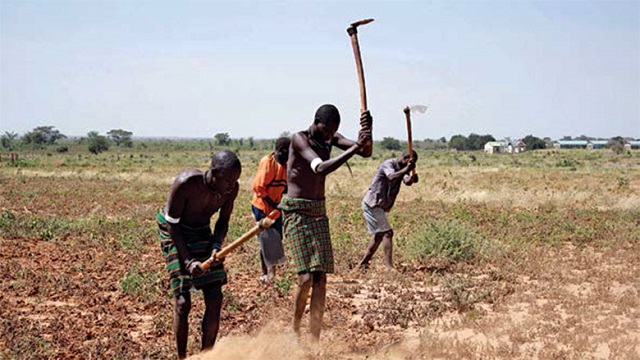
“It means severe water shortages in homes and industries,” Prof. Adom says, “For example, if you used to have access to water all day, you are going to have a much lower supply – a quantity so low that it does not meet your needs.”
According to the report, a significant proportion of the world’s population already suffers from severe water shortages. Currently, about 3.6 billion people in the world face inadequate access to water resources at least a month per year, and by 2050 this number is expected to rise to 5 billion people.
In 2021, areas such as India and China experienced severe floods, with numerous casualties. Tropical cyclones also affected areas such as Mozambique, Indonesia, and the Philippines. Areas such as Ethiopia, Kenya, and Somalia faced below-average rainfall, which caused severe drought in these economies in 2021. Also in Africa, rivers such as the Nile, Niger, and Congo experienced less than normal discharge in 2021.
“This means that the management of water resources is critical for achieving sustainable development,” the report says.
Impact on health
Climate change is also known to be linked to multiple health issues, including respiratory diseases, heart disease and stroke, water- and food-related illnesses, poor mental health, and pest-related diseases.
Climate health damages are projected to be between US$2 billion and US$4 billion globally by 2030. Between 2030 and 2050, approximately 250,000 people are expected to die from climate change–related health issues such as malnutrition, malaria, heat stress, and diarrhea.
The report says, developing countries with weak health systems and infrastructure will suffer the most from the health effects of climate change.
“In most East African countries, the intensity of malaria transmission is expected to increase,” the report says.
Projections indicate that malaria will become endemic in highland areas that were formerly unsuitable for transmission, whereas in the lower-altitude regions of the East African highlands, epidemic risk will decrease. In addition, climate changes driven by greenhouse gases and land-use changes will significantly affect the spread of malaria in tropical Africa well before 2050. The geographic distribution of areas where malaria is endemic may be significantly altered in the coming decades
Impact on energy
Some studies have reported the impact of climate change on energy demand and supply in a developing country context. Given that developing economies such as those in Africa are likely to suffer the most from the adverse effects of climate change, and with the problem of energy poverty on the ascendency in Africa, one of the immediate benefits of limiting global warming to below 2°C could be a reduction in energy poverty, which is known to be linked to other socioeconomic characteristics such as health, education, incomes, and gender equality.
Adaptation and mitigation
Prof. Adom says climate change involves communities or collective action, with governments as big players who foster the change efforts that are required by supporting private initiatives in climate adaptation and mitigation – either directly or through incentive designs.
“No attempts at adaptation and mitigation are too small,” he says, “If these small efforts are coordinated, we can expect to see results.”
He says individual households and individual businesses can do a lot. For example, people can cut down on the amount of meat and dairy eaten or change how transport is used – resorting to cycling, walking or public transport when possible. At home, energy saving practices can be adopted. And green spaces must be respected and protected.
He says people who use banks should ensure they conduct responsible investment.
“It is always important to know what kind of investment the bank is using money for,” he says, “If it is not something that is climate friendly, customers and clients can speak about that.”
Whatever the side effects will be, he says, everyone will be at the receiving end.
“Everyone has a voice and it is important to use it on climate related issues,” he says.
Credit: The Independent Uganda
Author; Bagombeka Job

